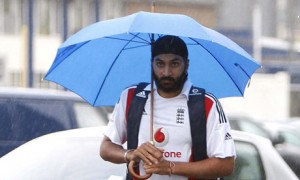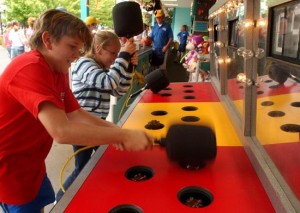
A gradual but inevitable descent into cricket-based loathing and bile.
FAO: New England
With the news this week that Mick Newell has replaced Ashley Giles as a selector, the main pieces of the England management jigsaw are now in place: Director (Paul Downton) Coach (Peter Moores, assisted by Paul Farbrace) and Selectors (Newell, James Whitaker and Angus Fraser). A shame about the players though, eh readers! It is fair to say that this gang of six ex-pros – who if they were all photographed together would look rather like the partners of a large regional law firm – have a lot of work to do. The winter debacle was the climax to two years of steady decline that had been largely obscured by irregular match-winning / match-saving performances.

Have you been in an accident at work? Why not contact Downton, Farbrace, Fraser, Whitaker, Moores and Newell?
The obvious thing that needs to be done is finding a squad of players capable of winning regular cricket matches. But we feel there are wider issues to be addressed as well. This shouldn’t be taken as an English version of Shane Warne’s blueprint for Australian cricket (a Vaughanifesto, if you like) – but sets out things that as fans of the game and of England, we’d like to see the England management prioritise in their first few weeks of meetings, powerpoint presentations and brainstorming edutainment focus group seminars.
1. Sort out the coaches
With Moores already having an assistant in the shape of Farbrace, England have more coaches than the Shearings depot. If all these stay in their position, not only will the ECB have to flog rubbish merchandise to try and meet their salaries, but it will suggest that there will be more of the same: irresponsible batting, tired bowling and shoddy fielding. We would politely request that the first P45 has Graham Gooch’s name on it.
2. Keep their senior players fit and in form
The eleven players that featured in last year’s fourth Ashes Test had between them more England caps than any other XI previously selected. At the very least, there were eight senior pros who were inked in on the team sheet. The various retirements, illnesses and enforced absences have now reduced the core of the team to just four (or hopefully five) players – a significant reduction in experience and proven quality. Now those four – Alastair Cook and Ian Bell with the bat, Stuart Broad and Jimmy Anderson with the ball – are absolutely crucial to England’s prospects. Furthermore, the current uncertainty over Matt Prior’s form and fitness leads to quite overwhelming concerns about the line of succession to the wicketkeeping throne. Occasionally, from a difficult situation comes serendipitous good fortune (for example Cook’s debut), but were any of these core players to miss matches then the chances of England winning would in our view disproportionately decrease. We should also mention the recent form of some of these, but we won’t – not least because Jimmy Anderson is proof that all people from Burnley are sublimely sexy and we would rather focus on that than his bowling figures in Australia.
3. Decide on an approach to the 2015 World Cup
As mentioned in our last podcast, there are not many months until the 2015 World Cup. Despite England having a relatively good Champions Trophy, there is in our view huge uncertainty over what personnel will be involved. This is not necessarily an unresolvable dilemma – England will have plenty of limited overs cricket between now and then – but Moores et al must decide what their Plan A will be. If all available players are fit, will they pick five genuine bowlers or should they include all-rounders? Is it better to build a total or set off attacking from the start? Is there a place for the hitherto T20 ‘specialists’ in the ODI side? We could go on, but we’ve got a rare video of Margot Robbie to watch.
4. Attitude
This is a big one, but is rather intangible. After all, if the general approach under Andy Flower / Hugh Morris stayed consistent from the good times to the bad times, then must this not be irrelevant to the fortunes of the side? But there are a number of instances that taken in isolation may be minor, but in conjunction with each other create a troubling and negative trend. The grievances uttered by Michael Carberry and Nick Compton for example, which point to a poor if disgruntled attitude on their part as well as more pertinently poor man-management by the ECB. The immature, petulant behaviour (we will include the players’ use of social media and their night-time treatment of the Oval wicket as well as the onfield pettiness and bickering). The tactics that have moved from conservative and defensive to irritating and at times shameful (we mean time-wasting). It is acceptable for England to lose when they are outplayed. It is not acceptable for England to lose and act like a university hockey team.
(some readers wishing for a short interlude at this point may wish to google “Jimmy Anderson Attitude”,others should probably just look for Margot Robbie pictures instead)
5. Determine what is expected of fringe players
As evident from our England Watch feature, there are shitloads of players who might be considered for selection this year, in fact almost as many as there were mediocre Britpop bands. Most have played in some fashion for England before (although not Menswear – they were really shit). We have advocated that some of these players, such as Steven Finn and Jonny Bairstow, need a season of playing regular cricket for their county. The coaches, or the selectors, should liaise with these players – and their counties – and outline what is expected of them, and what each might focus on, in order to be in the best position to be selected again. Similarly, some players might need to be shown faith with the expectation that they then take responsibility. If Monty Panesar, for example, was told that he would go into the summer as England’s first-choice spinner and that he has both series to prove that he is still an international-class bowler, we would expect him to have the mental aptitude to do so, whereas constantly selecting him, dropping him and then selecting him as 12th Man is not going to serve anyone particularly well. Mind you, neither will peeing on bouncers (see point 4).
6. Ability or potential?
There appears to be a presumption that elder players such as Compton and Carberry (see point 4), and perhaps Graham Onions, have had their go and as they are in their 30s, should be ignored. What purpose does this serve, if it is a rule applied generally? The Australians thrived with five players aged 32 or older (six if you include Shane Watson, which we don’t). Whilst this is not likely to be a long-term panacea for wider problems, in Test cricket, where every game should matter, age should not be a sole determinant in selection. If one eye is on the future, the Ashes are only next year (bloody hell) so picking a 31 year old Onions now is unlikely to prejudice things this time next year. And if the previous 12 months showed anything, it’s that things change ridiculously quickly.
Alternatively, England might go balls out and just pick youngsters. But if they do, then it needs justification.
7. What is the point in – and purpose of – the Lions?
It is only when gaps emerge in a team that their succession-planning becomes tested. England – with possibly the best resources in world cricket – should be more than reasonable at this. They have an academy thingy. They have semi-regular Lions matches and tours. They have various youth teams. They create opportunities for players to temporarily switch counties in order to get a game. As mentioned above, there are billions of coaches and support staff. Yet, and yet, the transition into the first team is largely unsuccessful (see Carberry and Compton appearing more pissed off to have been not selected than to be proud of having played in the first place, see several talented players not having developed as they were expected to). Moreover, young players are coming and going like moles in that fairground whacking-moles game. More importantly, it makes the predictions of our England Ladder look rather silly. Of course, there should be no predefined assumption that Player X will replace Player Y, but for too long now England’s selections have appeared somewhat haphazard.
8. Help the spinners to help themselves
England are quite fortunate that this season’s visitors are Sri Lanka and India: two teams whose weakness will be against swing bowling. Because, without Graeme Swann, England are as bereft in the spin department as they have been for years.
There are several young spinners around, but none stand out. Neither of the experienced candidates Panesar and Tredwell inspire confidence either (although each should be treated as per points 5 and 6 above). The young ones need to bowl lots and lots of overs, but need to be assisted by the coaches along the way. How should they be developing? How can they learn about tactics and game plans? What kind of role might they play in different situations? One thing that leading spinners do – apart from being in control of their deliveries – is understanding and mastering the context of the match. Although we generally only use Warne as stooge for some feeble jokes, whenever he is on television discussing his approach to bowling, he comes across as a sage, as a prophet. Can Peter Such and Mushtaq Ahmed (or whoever) pass on similar lessons to the likes of Briggs, Borthwick and Kerrigan?
9. Remember how to catch
England’s fielding in recent months has been as woeful as we can remember (although in the World T20 this ineptitude wasn’t confined just to them). During the Ashes this may have been influenced by broken spirits and knackered minds, but that should be no excuse. Most of the players these days have shown a reasonable level of ability in the field in the past; it should be a priority for them to get back to a high standard. Catches may not specifically win matches, but they sure help. What’s more, good fielding can spread positivity through the ranks – and bad fielding the opposite. Obviously no catches are deliberately shelled, but the defensive plea uttered by captains in the aftermath of another disappointing performance in the fields only serves to highlight the problem.
10. Buy Giles Clarke a new suit
But only if it’s made from nettles and barbed wire, the prick.




No Comments
Post a Comment